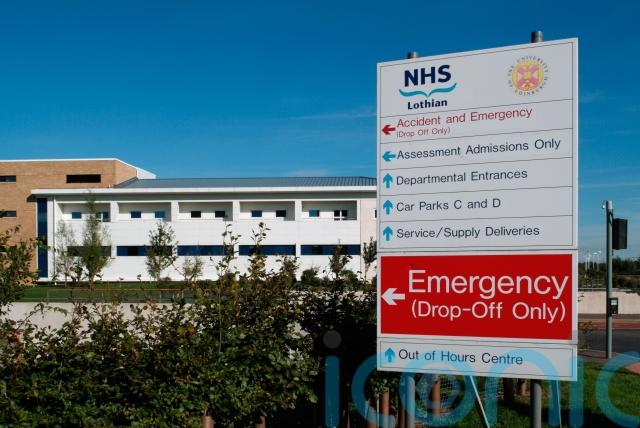
An accident and emergency doctor and former deputy chief medical officer in Scotland has said he has been forced to see some patients outside his hospital’s front door due to pressures.
David Caesar, who served for just under a year as an interim deputy chief medical officer during the Covid-19 pandemic as well as being an emergency medicine consultant at Edinburgh Royal Infirmary, wrote in The Times that there is a sense of “impending doom” among doctors as Hogmanay approaches.
His comments come as A&E waiting times performance hit another record low, with just 55% of patients seen and subsequently admitted, discharged or transferred within the four-hour target in the week to December 18.
In the same week, a record 1,821 people waited longer than 12 hours in A&E – an increase of almost 700 from the previous week. The number of people waiting more than eight hours increased by almost 1,500, from 3,045 to 4,536.
Dr Caesar said: “We are seeing patients anywhere we can: in corners and corridors, and occasionally the best place for a private discussion with a patient who is well enough is outside the emergency department’s front doors.

“I can talk to them in the calm, away from the crowd, and then often send them home.”
Writing about the situation seen in his hospital on Thursday, Dr Caesar said it started the day around 300% over capacity, with 45 patients still waiting for beds.
He added: “There is a sense of impending doom as the prospect of Hogmanay in the capital looms.”
In a bid to free up beds, NHS Lothian has again urged family and friends to take in patients who no longer require treatment and are waiting for a care package to be put in place.
The health board’s medical director, Tracey Gillies, said: “Many of our patients no longer require hospital treatment but can’t go home until an appropriate care package is in place or a care home placement becomes available.
“We are urging the families of these patients to please consider how they can help look after a loved one at home on a temporary basis.

“Our teams will be on hand to provide support and discuss their needs and will only allow patients to go home after a robust clinical assessment.”
Dr Gillies went on to say that Dr Caesar’s diary series in The Times “may help to demonstrate the challenges that our staff are facing, while also highlighting the tireless dedication they show day in, day out to ensure that the most clinically urgent patients are prioritised to get the care they require”.
She added: “We have been really clear for some time that all our hospital services are under extreme and sustained pressure.
“The emergency department often bears the brunt of the overcrowding that results from those pressures.”
Calum Campbell, the board’s chief executive, added there has been “unprecedented demand for some time”.
Meanwhile, A&E consultants from NHS Greater Glasgow and Clyde have had a request to declare a major incident declined by health chiefs, according to a report from the BBC.
The broadcaster said it had seen messages sent from doctors to board bosses, with one message saying: “This is without any doubt the worst shift I’ve worked, and I’ve never been more convinced of real patient harm due to overcrowding and exit block.”
Another said: “We are now unable to provide safe critical care.”
The board reportedly rejected the request on Thursday.
A spokesperson for NHS Greater Glasgow and Clyde said: “We have an escalation policy that would allow us to declare any major incidents and we closely monitor the safety of our departments and patients at all times and keep this under close review.
“Our services, like the whole of NHS Scotland, are facing major pressures including significant Covid, flu and norovirus cases and our staff are doing all they can to meet this demand.
“NHSGGC is taking a number of actions to support our A&E departments at this time including recruiting staff as available, diverting staff from other activities to support patients arriving via our A&Es and creating additional inpatient capacity.
“Whilst all of our services are experiencing extreme demand, we would ask the public only to attend A&E if it is urgent or life threatening.”
Health Secretary Humza Yousaf said: “Covid backlogs, rising cases of flu and Strep A, delayed discharge and a cold snap are all compounding the usual pressure on healthcare services at this time of year – making this one of the toughest winters in the history of the NHS.
“Our £600 million winter resilience plan is recruiting 1,000 extra staff, pumping £45 million into the ambulance service and expanding home care capacity to help ease pressure on A&E departments.
“We are also encouraging families and carers to help patients home where possible – getting them in a comfortable setting and freeing up space in hospitals.”
Subscribe or register today to discover more from DonegalLive.ie
Buy the e-paper of the Donegal Democrat, Donegal People's Press, Donegal Post and Inish Times here for instant access to Donegal's premier news titles.
Keep up with the latest news from Donegal with our daily newsletter featuring the most important stories of the day delivered to your inbox every evening at 5pm.